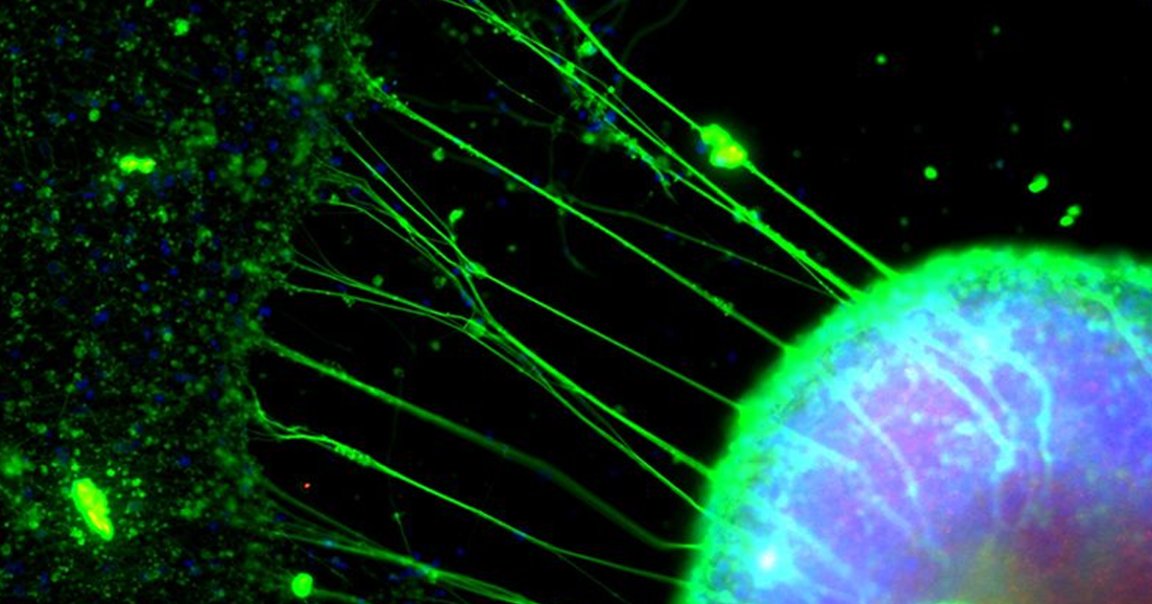
Mini-Me
When science writer Philip Ball donated some flesh from his arm to a neuroscience lab growing “mini brains,” he originally intended to contribute to research into the biological mechanisms of dementia.
Instead, he ended up with a simplified genetic replica of his own brain growing in a petri dish — and found himself questioning what makes us human, according to a new review of Ball’s upcoming book published in Nature.
Introspective
Ball wrote last November that most of the mini-brains died off quickly. One survived, though, taking root and growing into an isolated model version of a living human brain. Ball had no delusions about the organoid being the same as a human brain — it had no sensory inputs, for example. But it did make him question how we define humanity in a biological sense.
“I can no longer map that sense onto any physical description of the human body,” Ball wrote. “I am more conscious than ever of our composite and contingent nature: we are communities of cells.”
Cultural Creation
In Ball’s book, he details the often racist and sexist history of biomedical research, showing how each era of research was influenced by the prejudices of the day, per Nature‘s review.
“The book’s main thrust, however, is that the concept of pure, objective science is a farce,” writes Nature‘s Natalie Kofler. “Perception of science is inexorably linked to culture. It always has been — with implications for both.”
READ MORE: Brain in a dish, babies by design: what it means to be human [Nature]
More on mini-brains: Robots Can Grow Humanoid Mini-Organs From Stem Cells Faster And Better Than People